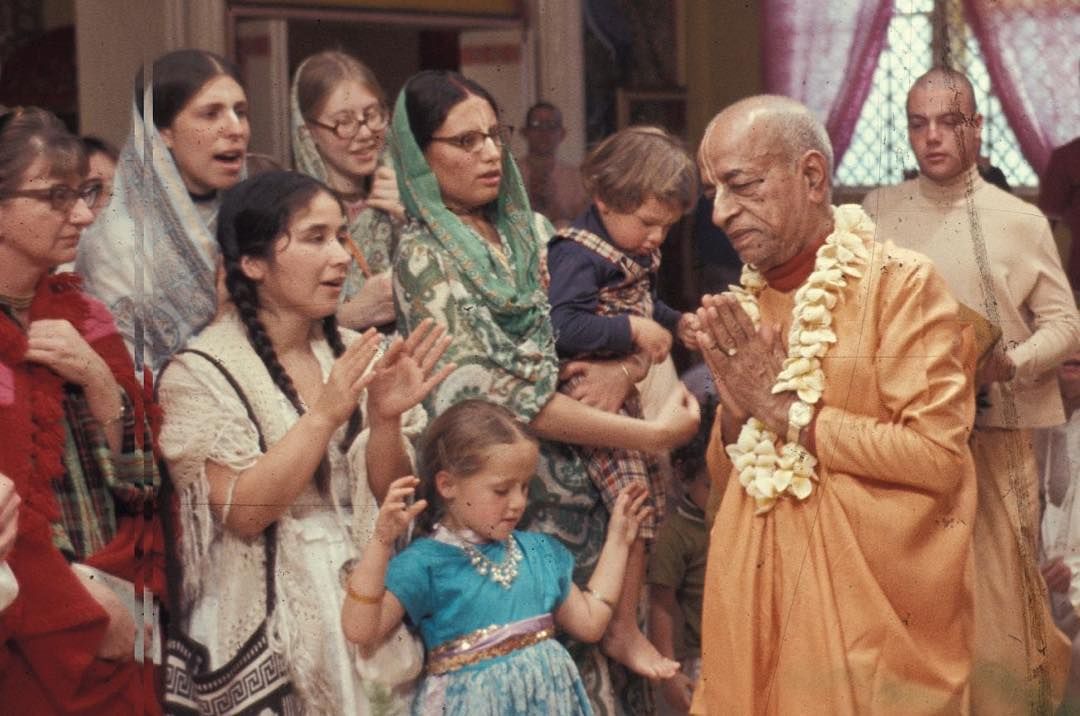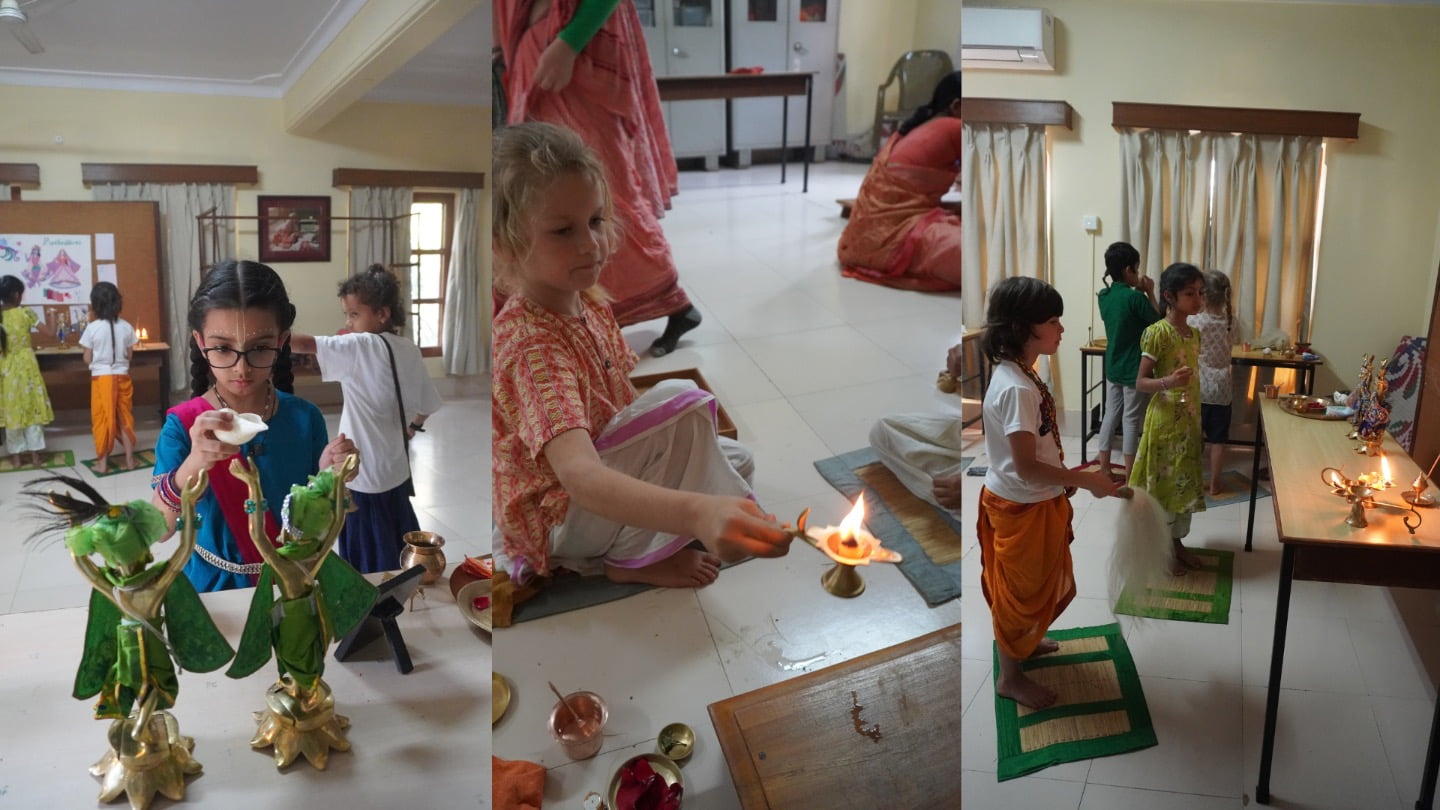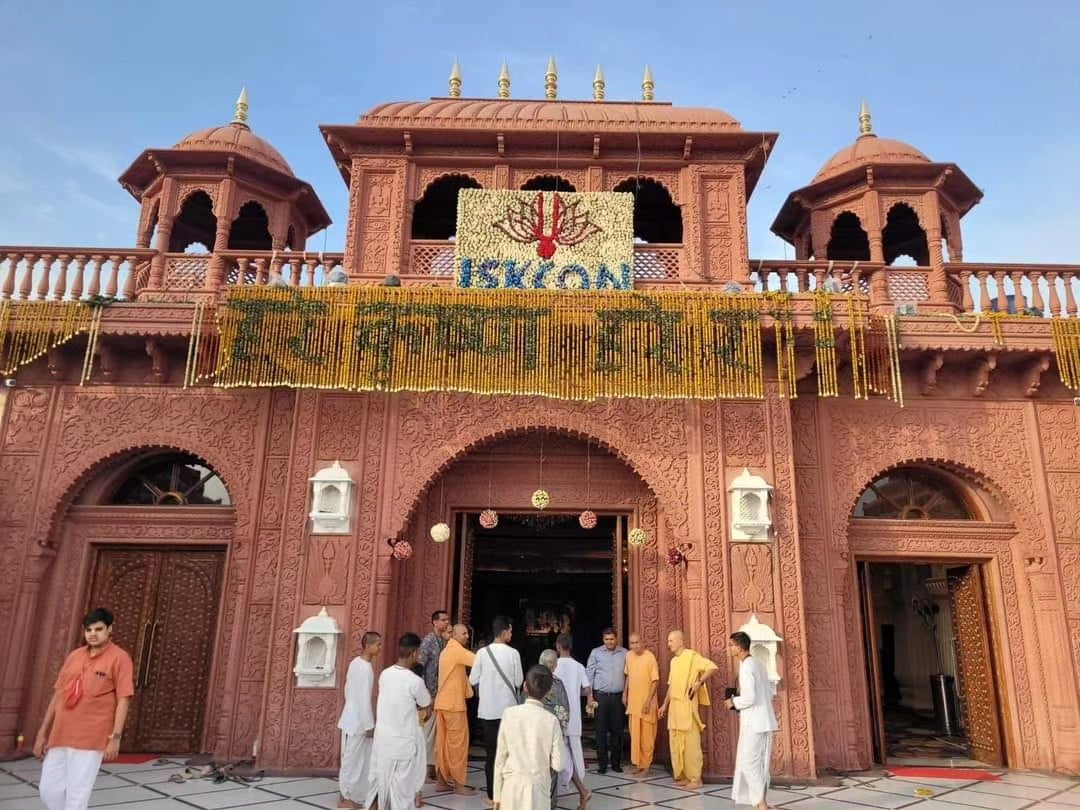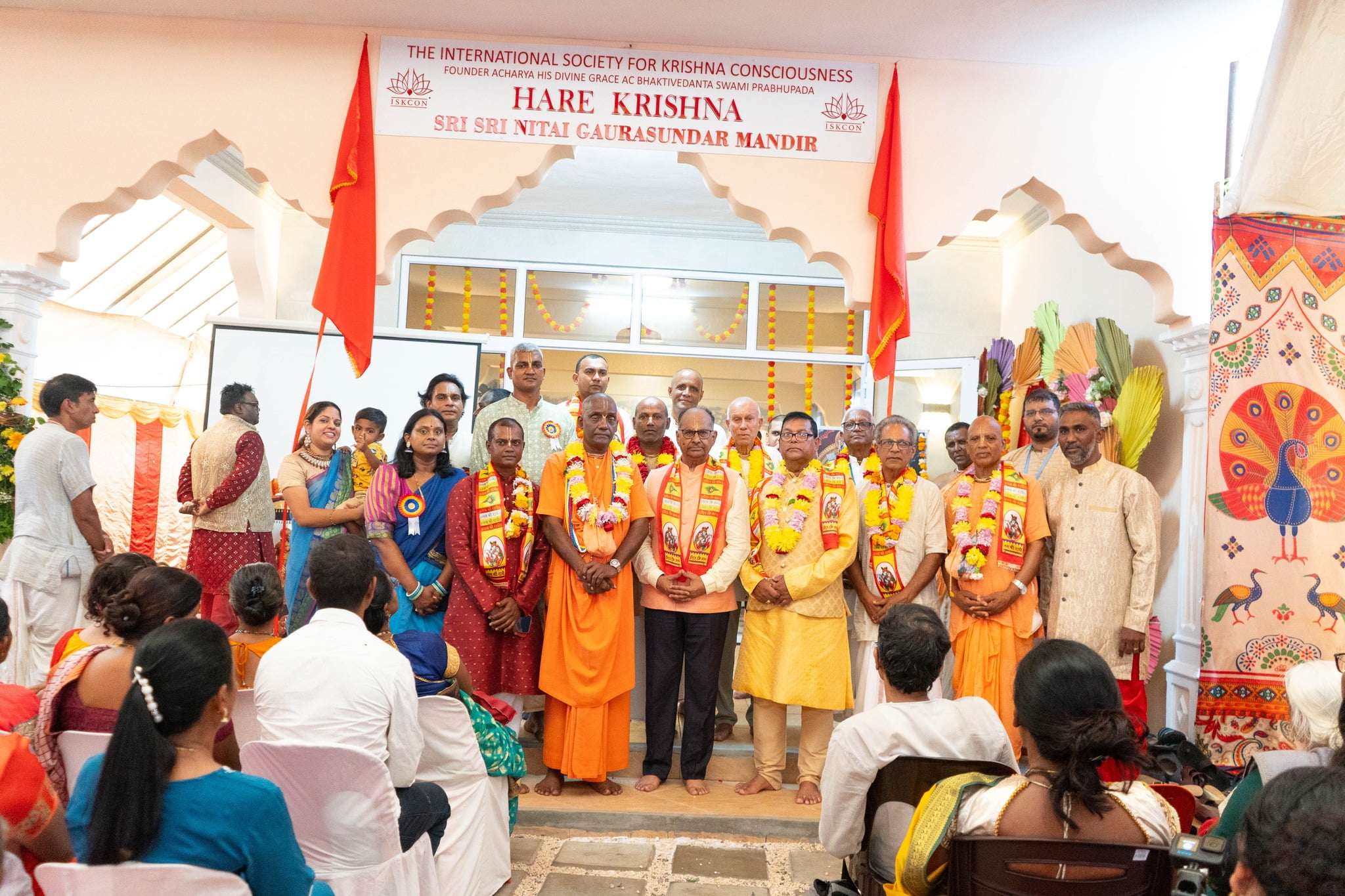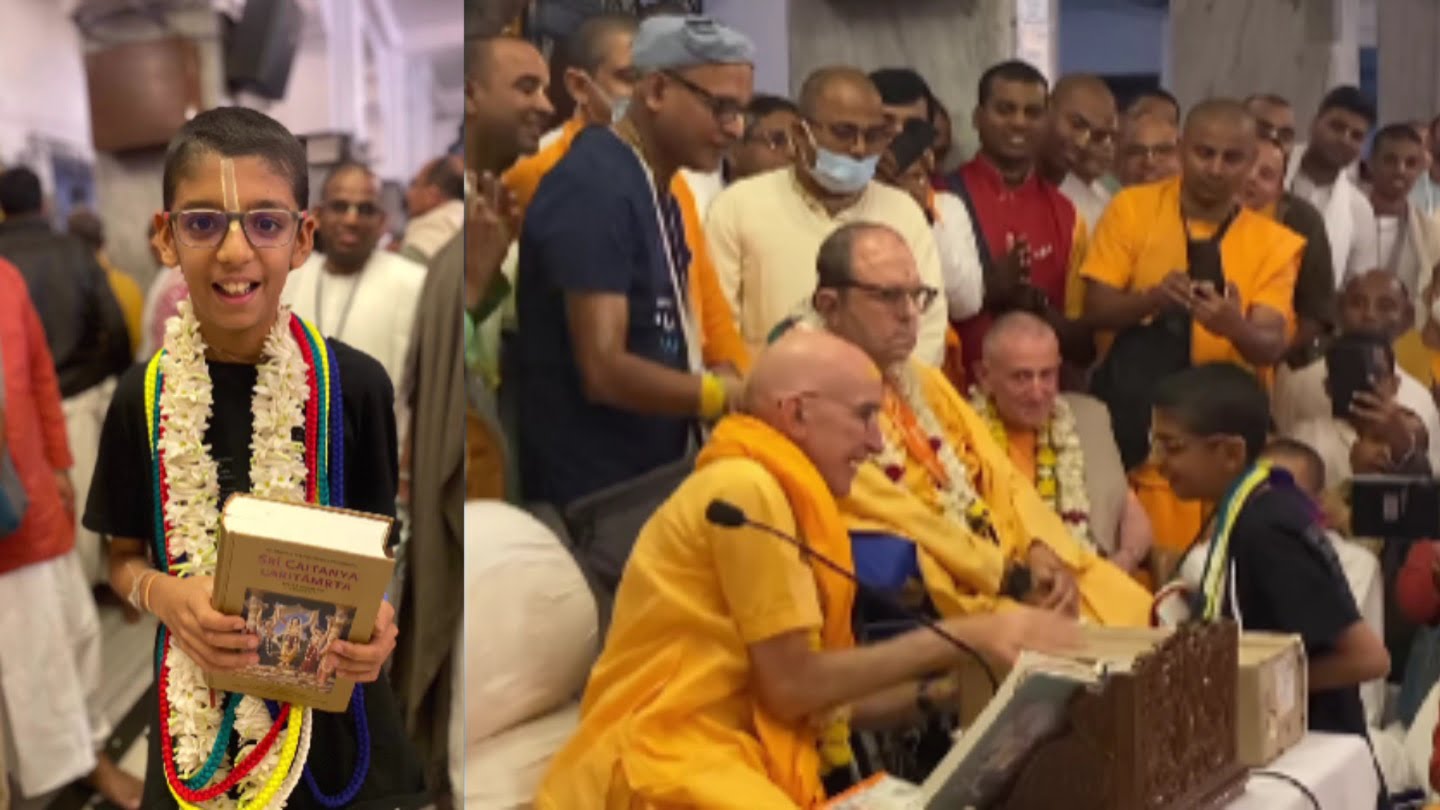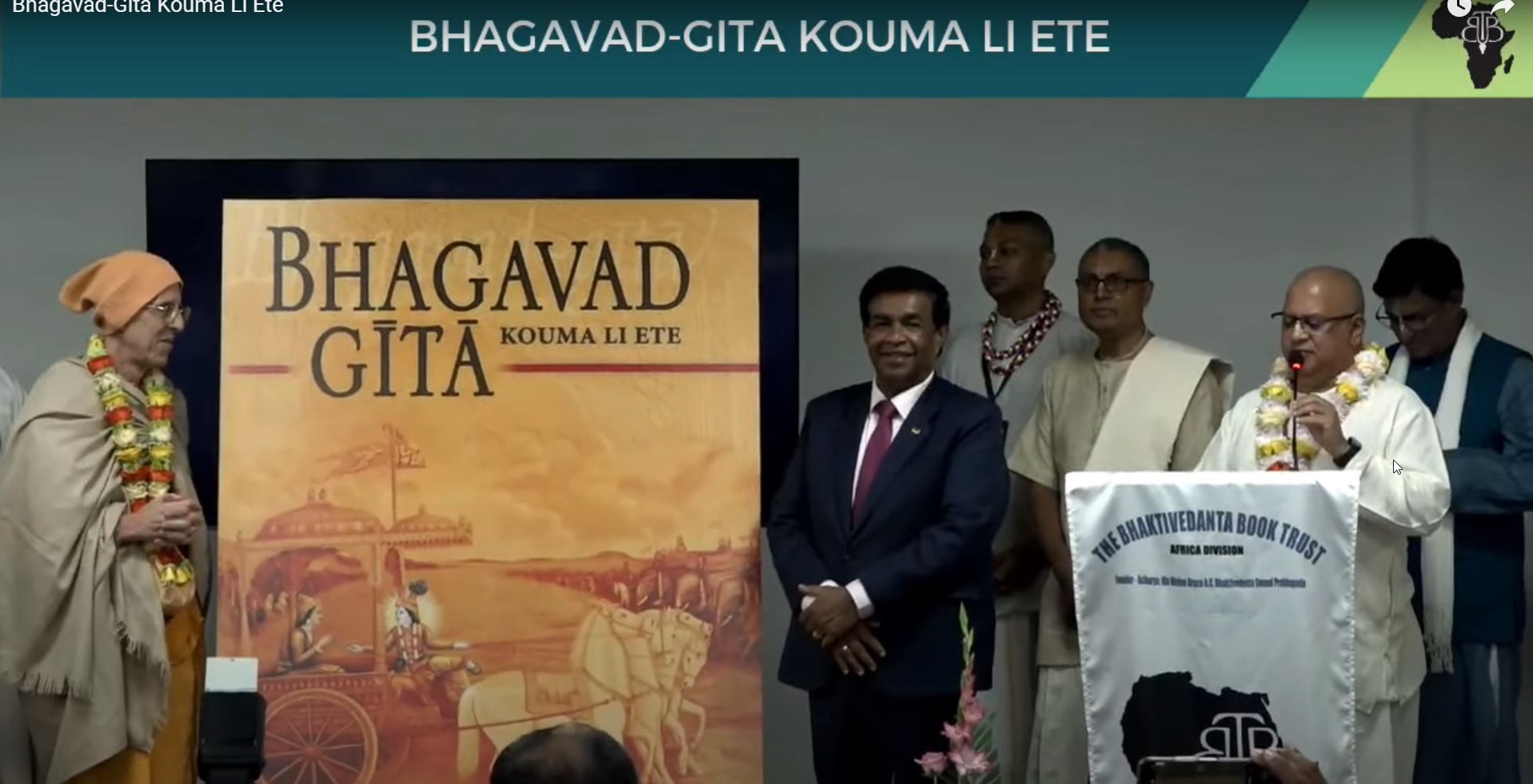Bhaktivedanta Players Move Thousands of Hearts Over 40 Years
By Madhava Smullen | Nov 10, 2017

The UK’s Bhaktivedanta Players performed the spiritual epic Ramayana to a sold-out crowd of 600 at the historic Watford Palace Theater on November 4th, as part of its “Diwali at the Palace” event.
As usual, audiences were rapturous.
After over forty years of first-class dramatic performances, the Players, based at Bhaktivedanta Manor, are much loved and in-demand throughout both their local English community, and the ISKCON world.
Originally starting out under the name “CIT (Caitanya’s Instant Theater)” in the early 1970s, the group became known as the Bhaktivedanta Players in 1976. Devotees were inspired to focus on the service when Srila Prabhupada told Mukunda Goswami that England, with its rich culture of theater, could be culturally “conquered” through drama.
One of the most dedicated in this service – the Bhaktivedanta Players’ current writer, producer and director Jaya Krishna Das – was just a child when he started with the group.
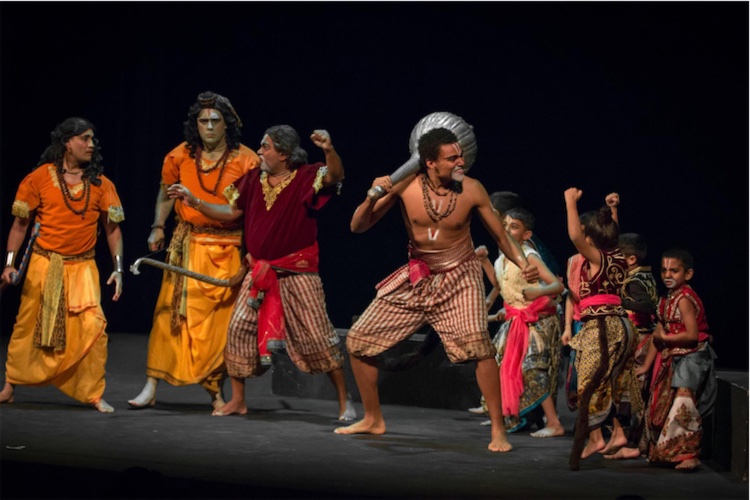
Rama, Lakshman Hanuman and the monkey warriors prepare to march onto Lanka
Hailing from a typically pious Gujarati family, he moved from Kenya to the UK in 1969 and began visiting Bhaktivedanta Manor.
“My brothers and I used to ride everywhere on our bicycles,” he recalls. “The Manor, with its 17 acres, cows, and really nice devotees was a bit of an oasis for us. We really liked it there and started doing different little services. When the devotees asked us if we would like to be in plays, we jumped at the chance.”
In 1976 at the age of thirteen, Jaya Krishna got his first role as a monkey facing Kumbhakarna in the Ramayana, and has never left the group since.
In the early days, the Bhaktivedanta Players traveled as part of the UK’s Hare Krishna Festival program. “We used to go in a big juggernaut called ‘The Traveling Temple,’ doing Harinama and book distribution,” Jaya Krishna recalls. “On the weekends, we would open it up, put a stage in front, and perform simple skits based on teachings from the Bhagavad-gita – such as ‘The Drowning Man,’ ‘The Boatman and the Scholar,’ and ‘The Bird in the Cage.’
This continued until 1983. In 1984, Jaya Krishna and his friend, actor Dwarka Puri Das, took over the management of the Bhaktivedanta Players, and have been running the group since then.
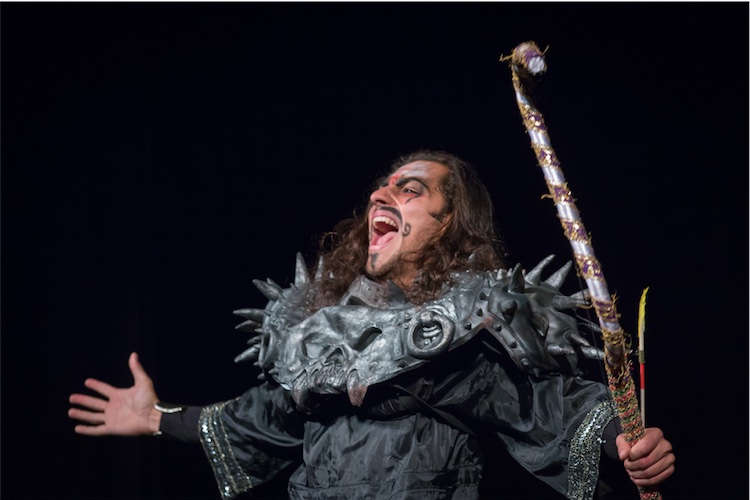
Ravana challenges Rama to fight him
Their dedication to their service built as they saw the impact it could have on people.
On one occasion, a Westerner who had never had any contact with devotees or Vedic culture before approached Jaya Krishna after a show with tears in his eyes. “I’ve never felt so emotionally moved or uplifted as I have after seeing your drama,” he said.
On another occasion, a hippy who was just visiting Bhaktivedanta Manor was so affected by the Janmastami performance of “The Birth of Lord Krishna” that he couldn’t leave once he had seen it. “The next day he shaved his head and moved into the temple,” Jaya Krishna recalls.
With constant live shows, the Bhaktivedanta Players’ dedication had multiple opportunities to be tested. Often, they performed at schools around the UK, miming to their signature taped soundtracks rather than speaking live so that they could reach large audiences without microphones. Once, while performing to nearly a thousand school children, their sound system suddenly cut out. Rather than stopping, they carried on and completed the play, belting out their lines as loud as they could. And the end of the play, there was a massive standing ovation, with the children shouting out their appreciation.
Since the beginning, the Players’ productions have evolved from simple skits to huge epics. Their three-hour Golden Avatar play greatly impressed early Prabhupada disciple Brahmananda Das, who said that Srila Prabhupada “would be very happy to see them presenting Lord Chaitanya to all the Western people.” During the UK’s millennium celebrations in 2000, they staged a two-and-a-half-hour Ramayana. And in 2014, they toured a two-and-a-half hour Mahabharat with a cast of 40, selling out five venues of 700 people each.

Rehearsals can be fun
The Bhaktivedanta Players have been invited all over the world, performing at temples all over Western and Eastern Europe, South and East Africa, and India. At times they have connected with massive audiences, playing to ten thousand people in New Delhi and twenty thousand at an outdoor venue in the UK.
Over the years, while Jaya Krishna and Dwarka Puri held fast, many different Players have come and gone. Today, there is a core group of ten committed actors, most of them devotee youth.
“The youth like to express themselves, and drama is a fantastic way to do that,” Jaya Krishna says. “So I always try to involve them, give them bigger parts and more responsibility.”
After plays at Vaishnava festivals, many devotees approach the Players and tell them the drama was the highlight of their day, giving the youth a lot of confidence in themselves. Working with the Bhaktivedanta Players also gives them social skills, and a strong connection with ISKCON and spiritual life.
“One youth told me the other day that he wouldn’t come to the temple so much if it wasn’t for this drama service,” says Jaya Krishna. “The temple is great, but the youth need something more engaging, something they can sink their teeth into, something they can identify with.”
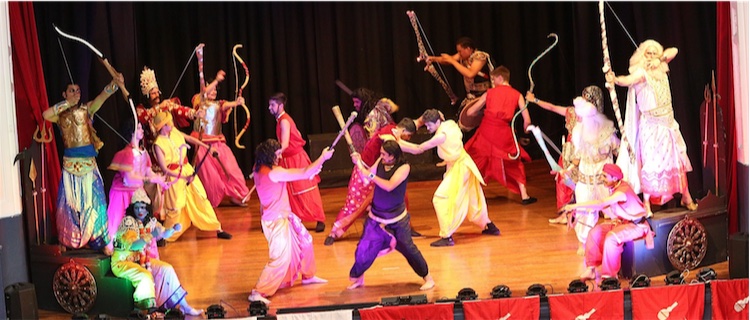
The Battle of Kuruksetra rages on in ‘The Mahabharat’
He adds: “We’re hoping that these young people will be the next generation of Bhaktivedanta Players.”
There will be a major legacy left for them. The Players now have fifty to seventy different drama scripts, forty soundtracks, and about five hundred costumes.
They are committed to a regular six major dramas per year at Bhaktivedanta Manor for Rama Navami, Gaura Purnima, Nrsimhadeva’s Appearance Day, Janmastami and Diwali, as well as smaller production on Nityananda’s appearance day, Radhastami and other holy days. And of course, they continue to travel around the world.
As well as traditional epics, the Bhaktivedanta Players also continue to put on contemporary allegorical plays such as “Mr. Fish” and “Journey of Life,” which make Bhagavad-gita philosophy relevant to people’s lives and help them understand Krishna consciousness.
These are often performed to students at universities, as well as at the Manor’s Soul Expressions program, geared solely to Western people. “They really appreciate it – Western people are always really up for dramas,” says Jaya Krishna.
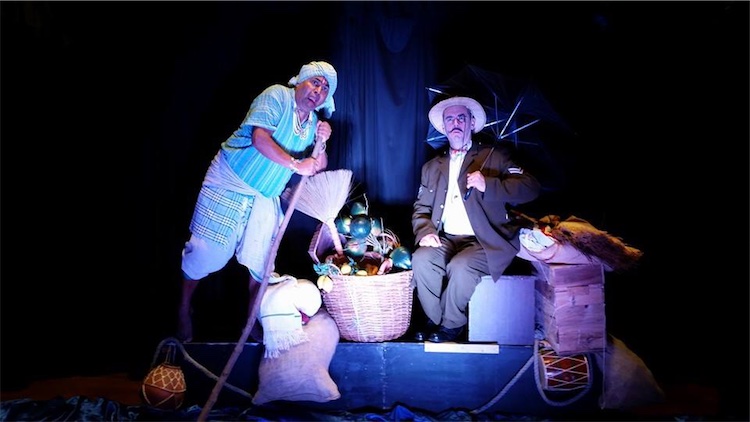
The Boatman and the Scholar
Sometimes the Bhaktivedanta Players put creative Krishna conscious spins on English traditions, such as the “Christmas panto.” Their latest production, set to be performed at Bhaktivedanta Manor on December 17th, will be a version of Beauty and the Beast in pantomime style.
“The main character, Bellarani, is a bhaktin who is really into reading Srimad-Bhagavatam, but everyone in the village thinks she’s lost her marbles,” says Jaya Krishna. “They think she should be rolling chapatis and getting married. In the meantime, the Beast is an arrogant, egotistical person who gets cursed by a sage. ‘You have outer beauty but no inner beauty, so you’ll become an ugly person!” he says. Then Bellarani meets the Beast and tries to teach him Krishna consciousness and how to be a good person – and eventually he changes.”
Next, Jaya Krishna is working on an audio drama CD for children, which will include four different stories: Hanuman Eats the Sun, Nrsimhadeva, Govardhana Puja, and Jagai and Madhai. Each fifteen-minute piece will be perfect for parents to play to their kids to get them inspired on festival days; or just for entertainment in the car or as a bedtime story. The album will also be downloadable on iTunes, and, if popular, may spawn sequels with four new pastimes on each successive album.
Jaya Krishna is also working on a major two-hour production of the story of Hanuman, which he hopes will be ready to tour in two or three years’ time.
Meanwhile, the Bhaktivedanta Players will continue their regular performances, staying strong more than forty years after they began.
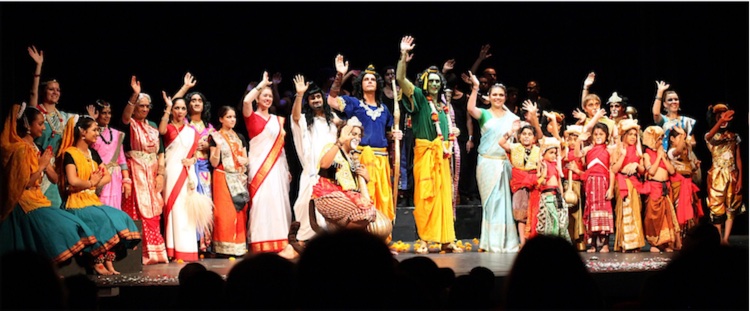
The cast of ‘The Ramayana’ waves after a performance
Jaya Krishna believes that the Players’ longstanding popularity is due to their painstakingly created high quality productions, as well as their strict adherence to Srila Prabhupada’s books. “We also use actors that are in good spiritual standing, so that you can feel there’s some spiritual weight behind their performance rather than just acting,” he says.
The bottom line, though is that everybody just wants to be entertained.
“And entertainment is a wonderful way of presenting the philosophy of Krishna consciousness without intimidating people,” Jaya Krishna says. “It also gives people things to identify with that they might have experienced in their own life – and of course, the pastimes always leave audiences feeling elated.”
“Those,” he concludes, “Are just some of the reasons why I think we’ve lasted so long.”




